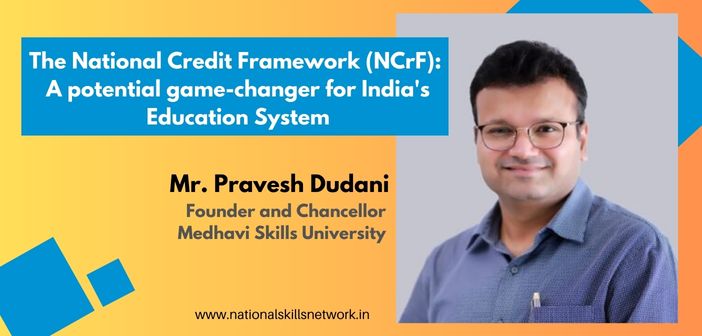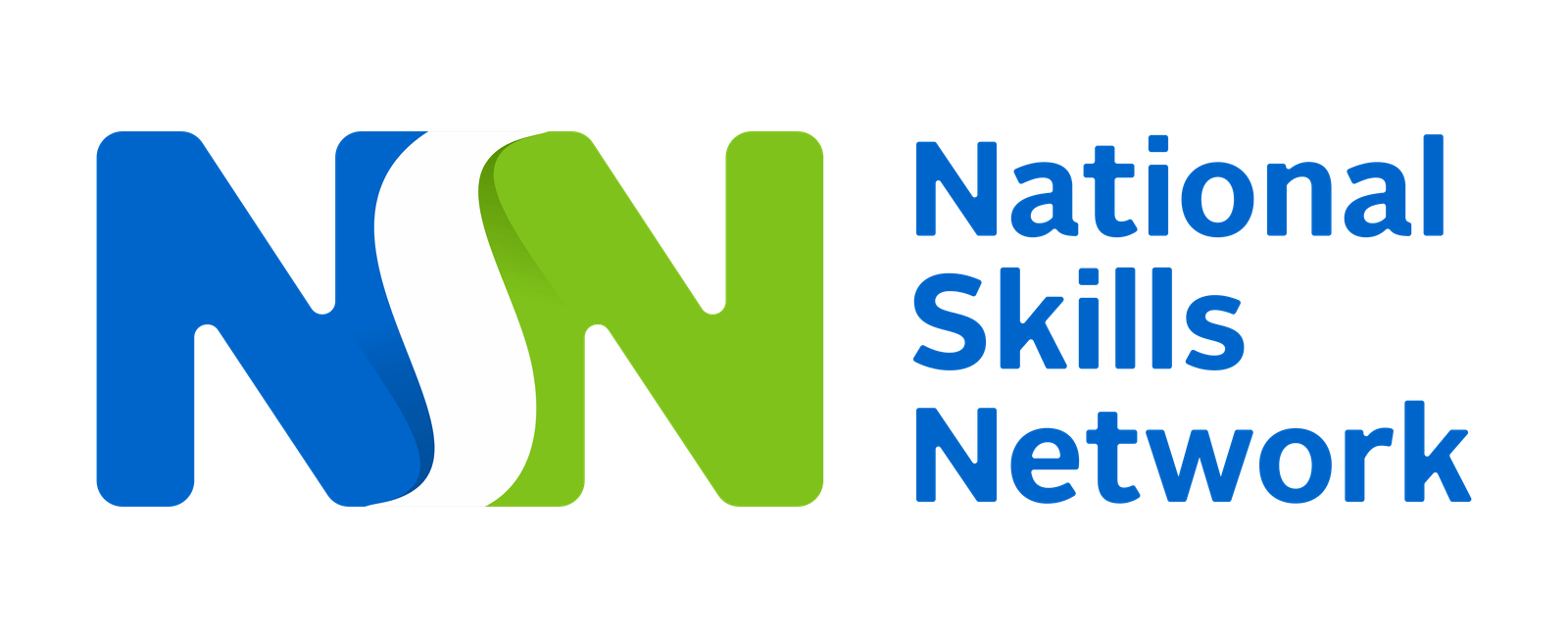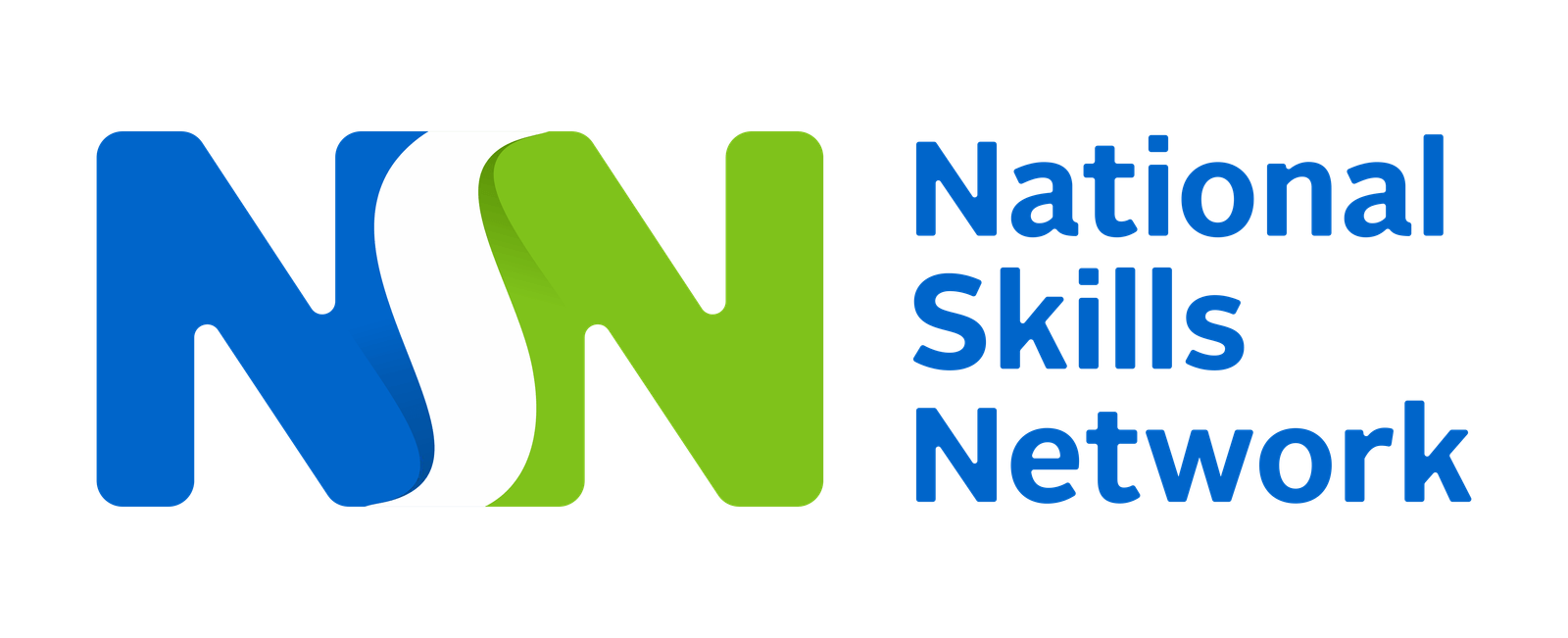The National Credit Framework (NCrF), a ground-breaking policy reform introduced under the new National Education Policy (NEP 2020), is poised to revolutionise the Indian education system. This policy has the potential to tackle the Achilles heel of Indian education: bridging the gap between education and employment. By doing so, the NCrF seeks to empower a generation of skilled and adaptable learners prepared to confront the challenges of a rapidly evolving global economy.
Author : Mr. Pravesh Dudani, Founder and Chancellor, Medhavi Skills University
India, while being one of the world’s youngest nations, grapples with a perplexing paradox. Despite a substantial demographic dividend, with over 62% of our population in the working-age group (15 – 59 years) and more than 54% under the age of 25, there’s an alarming shortage of necessary skills among our youth. A sobering fact revealed by a 2019 UNICEF assessment forecasts that by 2030, nearly half of Indian adolescents will lack the requisite education and skills for productive employment. This gap threatens not only our progress but also our economic growth, highlighting the urgent need for effective skill development concurrent with quality education.
The NEP 2020 identified this critical gap, underscoring the need to embed skill development within course curricula. To this end, the Government introduced the NCrF, a unified framework to harmonise general and vocational education and ensure seamless mobility between the two. This transformative policy measure was made possible by the combined efforts of UGC, NCVET, AICTE, CBSE, NCERT, NIOS, the Ministry of Education, and the Ministry of Skill Development and Entrepreneurship under the esteemed leadership of Dr. N.S Kalsi (IAS Retd), Chairman of NCVET.
The NCrF has been designed as an overarching framework with a single unified credit level that applies to all the frameworks, such as National School Education Qualification Framework (NSEQF), the National Higher Education Qualification Framework (NHEQF), and the National Skills Qualification Framework (NSQF).
In this innovative system, any form of learning, including reskilling and upskilling, can earn academic credits once assessed and certified by a government-authorised body, such as recognised Awarding Bodies under NCVET. Credits may be earned from various skilling courses, EdTech platforms, professional training, or even work experience, fostering an aspirational, flexible, affordable and industry-relevant educational landscape.
This new framework echoes the ancient Indian Gurukul system, which incorporated skill development as an integral component of holistic learning. It encourages a multidisciplinary and comprehensive approach to education, allowing students to choose their courses as per their interests and abilities as well as learn at their own pace.
NCrF proposes key shifts in higher education
- It allows for innovative subject combinations and flexible course completion schedules. Majors and minors can throw up interesting combinations, from Microbiology to Music, thereby fostering a multidisciplinary and holistic education.
- Given the equivalence of Skills and Vocational Education with Higher Education, the Higher Education Institutions (HEIs) would be able to integrate standardised competency benchmarked courses as credit-based modules into their programme curriculums.
- For example, UGC, as part of the NEP 2020 mandate, has recently mandated all Higher Education Institutions to have about 10 to 40 per cent of the 3- or 4-year undergraduate curriculum as competency-benchmarked skilling courses. This will compel many traditional higher education institutions to reconsider their curriculum and make it more outcome-centric and industry-relevant.

How NCrF helps students with choice and credits
- Students are now free to choose what they want to learn, regardless of their institution or mode of learning. Students can accumulate credits from various sources, focusing on skills relevant to new-age job roles, for example, opting for credit-based online courses from MOOCs such as SWAYAM or NPTEL or subscribing to Skill certification courses conducted by National Skill Development Corporation (NSDC) or a Skills University.
- They can also acquire credits through projects, internships, formal apprenticeships or any form of on-the-job training. Such outcome-focused learning would encourage students to complete higher education who prefer the learning-by-doing approach and make education inclusive and affordable through the ‘Learn and Earn’ approach.
- The accumulated credits will be stored in the ‘Academic Bank of Credits’ (ABC) a unified Aadhar and Digi Locker linked portal maintained by the Government of India through which seamless Assignment / Accumulation / Redemption / Transfers of credits would be possible encompassing School Education / Higher Education / Vocational Education and Skills Training ecosystem.
How NCrF helps the industry in building a talent pool
- The National Credit Framework (NCrF) opens up a promising avenue for the industry in talent acquisition and retention. It potentially allows Higher Educational Institutes to strategically collaborate with Industries to offer On-the-Job (OJT) embedded Degree / Diploma / Certificate programs. This alignment of educational curriculum with industry needs contributes to the practical skills training of course curriculums, ensuring the development of a talent pool that is better suited to the demands of the market. Moreover, this approach offers a dual advantage – students gain practical experience, equipping them with the necessary skills to become industry-ready, while organisations benefit from a readily available supply of trained personnel, leading to lower training costs, higher productivity and reduced attrition. Such Industry led educational models can potentially improve the affordability of higher education, enhance the Gross Enrolment Ratio (GER) in higher education, and contribute significantly towards the mandate of NEP 2020.
- The ‘Recognition of Prior Learning’ (RPL) provision of the NCrF is another powerful tool for empowering working professionals. This policy gives professionals a chance to have their expertise and skills, gained through years of experience, formally recognised and accredited. This is a boon to many in the Indian workforce who have gained expertise informally but lack the official academic credentials to back it up.
Moreover, the NCrF paves the way for a culture of lifelong learning. It extends beyond the traditional realms of academic subjects, recognising and rewarding excellence in non-academic skills like sports, music, art and crafts, and world skills competitions. This opens up avenues for students to explore their interests and talents outside the confines of regular academic disciplines, making education a more inclusive and enriching experience.
The introduction of the NCrF under the aegis of NEP 2020 is a historic moment for the Indian education ecosystem. It signals a decisive move by the Central Government under the visionary leadership of our Prime Minister of India, Shri Narendra Modi, towards bridging the gap between education and employment – a shift that could redefine the future of millions of Indian youth. By mainstreaming skill development and experiential learning, the NCrF aims to utilise India’s demographic dividend optimally and propel social progress.
To conclude, the NCrF embodies the transformative vision of the National Education Policy 2020, promising to re-engineer the landscape of education in India. As we move forward, it will be critical to ensure its effective implementation across the length and breadth of the country, involving all stakeholders—students, industries, educational institutions, and the state governments—in the process.
It might also interest you to read: Medhavi Skills University – Empowering youth through skill-based higher education
With this collaborative effort, we can hope to witness the NCrF becoming the cornerstone of a new, vibrant, and progressive educational system in India, one that nurtures a generation of empowered youth equipped with a holistic education and industry-relevant skills. I believe that NCrF, as part of the new NEP 2020, will go down in the pages of history as one of the most significant policy reforms in India, a true game-changer in our education system.
Subscribe to our YouTube channel for more updates:
Subscribe on YouTube













